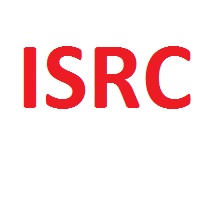This 11 minute episode focuses on the ISRC (International Standard Recording Code): what it is, what does it look like, how do you get one, and why it is important.
Also often called the ISRC code (even thought that is a bit redundant), it is “an international standard code for uniquely identifying sound recordings and music video recordings” (Wikipedia). The ISRC was developed by the recording industry in conjunction with ISO (International Standards Organization) in 1986, and updated in 2001.
But before we talk about ISRC codes, let me first say I am disappointed that SoundCloud removed the direct record/upload feature from its iPhone app this past week. This means it requires more steps for me to produce this podcast (ie. use Garageband or ProTools). It will also make it harder for me to produce Walking The Dog remotely, as I managed to do for the past two weeks while I was out of town, using just my iPhone and iPad. You can read about SoundCloud’s mobile app update on Hypebot.
On to ISRC codes. Deep breath, people.
Each of your songs, if you are a recording artist, should have a unique ISRC code associated with it. That code is embedded in the digital sound file, and included on the CD (not vinyl or cassette tapes). The ISRC code is also registered or kept in various databases by the artist or publisher. The ISRC code is important because it is used to track the physical CD sales, terrestrial radio plays, or digital streaming plays of the song online – for example via Pandora. It’s also used for tracking music charts, as well as combating music piracy.
[Tweet “It’s important the track has an ISRC code so royalties can be paid out to you”]
The non-profit SoundExchange organization has been tasked by the US congress to figure out what royalties you are owed US songwriter from your non-interactive digital internet radio plays – ie. Pandora, IHeartRadio, or other streaming radio stations. They collect those and then send you a check.
To clarify what I said on the podcast, SoundExchange does NOT handle royalties from Spotify, terrestrial radio, live performances, YouTube, covers of your songs, licensing for TV or films. Just streaming radio performances.
As both interactive (Spotify-type) and non-interactive (Pandora-type) streaming music services become an increasingly important way that people consume music, the ISRC code will only become more important for musicians in terms of tracking royalties and charts.
Fierce battles are being waged within the music industry over copyright and royalty rates, particularly as things heats up with YouTube/Google’s much-anticipated streaming music service and the indie labels. The ISRC is an important reporting mechanism and transparency tool. If you are really interested, read SoundExchange’s legal counsel’s filing with the US Copyright agency, which actually has a lot of good information about ISRC codes and a very coherent argument about why they are an important standard.
I welcome your comments, corrections, and feedback.
Some more helpful guides to ISRC codes:




2 comments
Do Soundcloud and ReverbNation report ISRC “spins” to any tracking or royalty collecting entities?
Hi Steven! Thanks for your comment. I thought I had replied to this a while back, but I must have not hit the Post button!
The short answer is no, Soundcloud doesn’t pay royalties, because they don’t charge the listeners a fee – so they are not like Spotify or Pandora. Their terms of service for posting music is that you (the artist) give them a royalty free license when you upload tracks. They have said they would introduce an ad-spported service that would collect ad revenue and then pass that along to pay the artists. http://www.theguardian.com/technology/2014/aug/21/soundcloud-ads-musicians-major-labels . To this end, Soundcloud have been negotiating the payout rates with major labels, the first of which was Warner in Nov 2014 http://www.cnet.com/news/soundcloud-goes-legit-with-licensing-deal-with-major-label-warner/ This article in YourEDM however, shows that they are running into some problems with their strategy, as they try to crack down on derivative/remixed works which EDM and other artists have (until now) posted for free for exposure. Sony is complaining, and since the royalty deal with Sony is not settled, Sony is pulling its artists from Soundcloud. It seems Soundcloud is stuck between the indies which made it huge (175+ million users) and the major labels. http://www.youredm.com/2015/05/28/soundcloud-scaring-off-both-small-artists-and-major-labels/